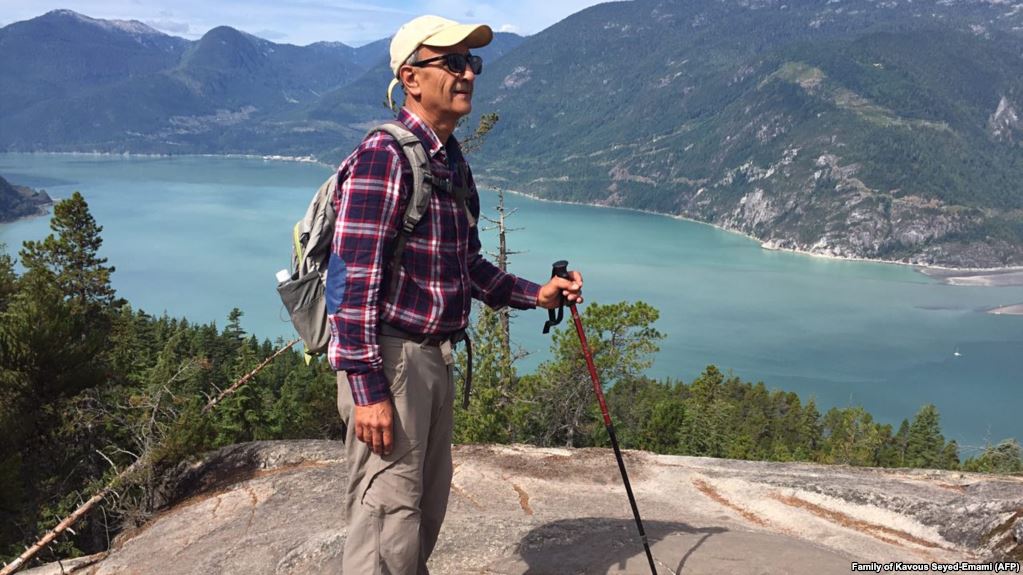Special to WorldTribune.com
Radio Free Europe / Radio Liberty
Academics in Iran and rights activists are calling for a serious and transparent investigation into the death of Iranian-Canadian academic and environmental activist Kavous Seyed-Emami in prison.
Four academic societies related to political science, sociology, peace studies, and cultural studies made the call in an open letter to President Hassan Rohani published on Feb. 12.

Iran’s judiciary says Seyed-Emami committed suicide while in custody, a claim his son says he doesn’t believe.
Activists say there have been other suspicious deaths among detainees in Iranian prison that authorities have labelled as suicide.
In their open letter, the academics called on Rohani to provide answers over the case, saying Seyed-Emami’s death “astounded and shocked the scientific community and the environmental activists of the country.”
Describing Seyed-Emami as a “distinguished scientist” and an “ethical human being,” they said that “the news and rumors related to his arrest and death are not believable.”
“Our minimum expectation is that you take immediate and effective action to seriously investigate the case… and make the institutions involved in this painful loss accountable,” the letter added.
Seyed-Emami, 63, was arrested on Jan. 24.
The Iranian authorities told his wife that he had died in Tehran’s Evin Prison on February 9, his son, Raam Emami, said in social-media posts.
“They said he committed suicide. I still can’t believe this,” he wrote late on Feb. 10, adding that the family was asking for an independent autopsy.
On February 11, Iran’s judiciary confirmed that Seyed-Emami died in prison and said his death was a suicide.
Seyed-Emami “was one of the defendants in a spying case and unfortunately he committed suicide in prison since he knew that many had made confessions against him and because of his own confessions,” Tehran’s prosecutor Abbas Jafari-Dolatabadi told the semiofficial ILNA news agency.
The New York-based Center for Human Rights in Iran (CHRI) said in a Feb. 12 statement that Seyed-Emami died “under highly suspicious circumstances.”
It said the prosecutor’s “incredulous claim of knowing the reason for an individual’s alleged suicide casts further doubt on what can only be described as the state’s increasingly desperate attempts to cover up the events leading to the death of Seyed-Emami.”
Authorities must allow an “independent and transparent” autopsy of Seyed-Emami’s body, the statement added.
Seyed-Emami, a U.S.-trained scholar, had been managing director of the Persian Wildlife Heritage Foundation, which seeks to protect Iran’s rare animals.
He had taught sociology for decades at Tehran’s Imam Sadegh University, considered a hard-line institution where future leaders of the Iranian establishment are trained. Seyed-Emami had said he felt it was his duty to teach his opposing views.
A Canadian Foreign Ministry spokesman said authorities were looking into the matter.
The news of Seyed-Emami’s death comes as Iranian prison officials said two detainees arrested during the recent nationwide antigovernment protests had also committed suicide.
The detainees’ families and many activists, however, have disputed those conclusions and called for an independent probe.
